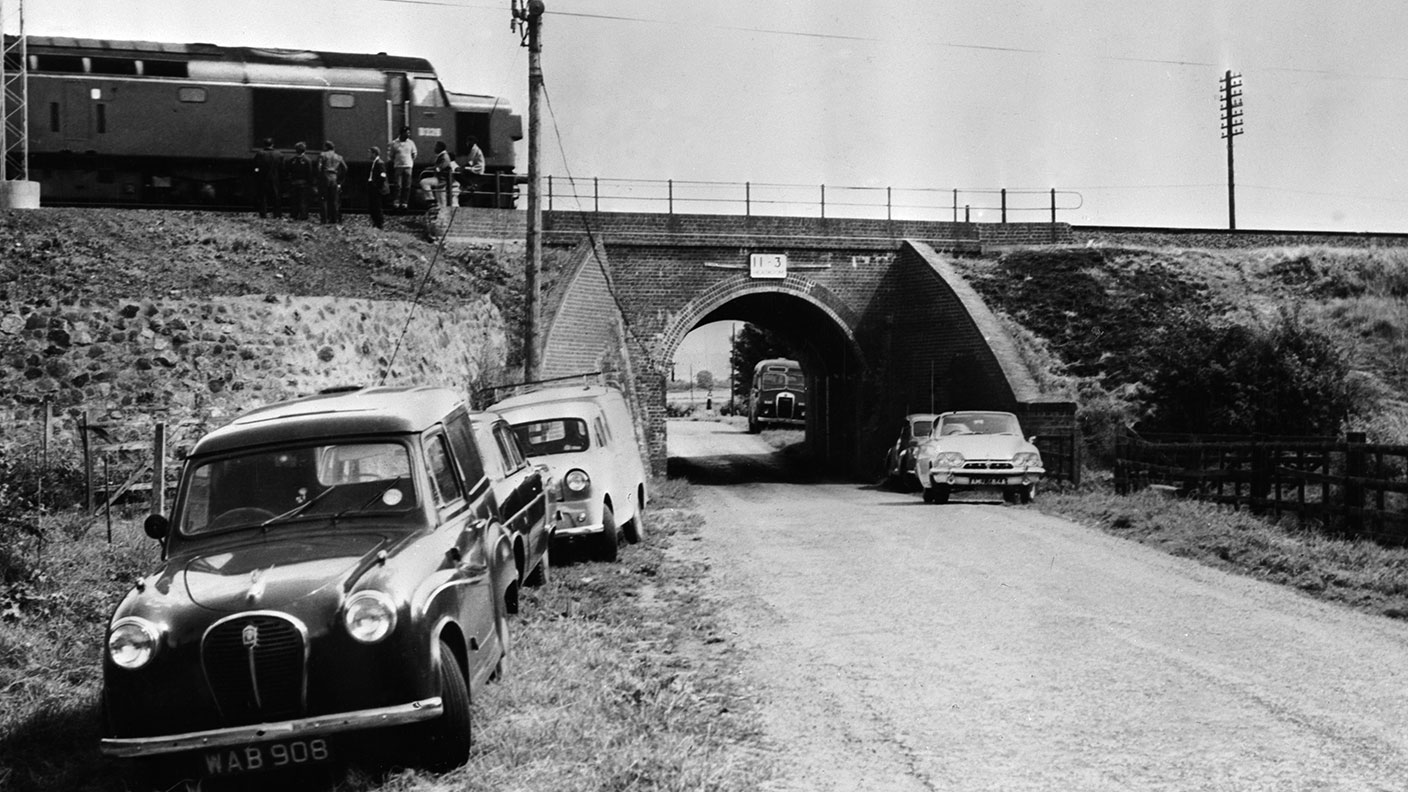8 August 1963: the Great Train Robbery took place
The Great Train Robbery, arguably the most famous heist in British history, took place on this day in 1963. The robbers got away with £2.6m in cash.


Get the latest financial news, insights and expert analysis from our award-winning MoneyWeek team, to help you understand what really matters when it comes to your finances.
You are now subscribed
Your newsletter sign-up was successful
Want to add more newsletters?
The Great Train Robbery of 1963 was arguably the most famous heist in British history. Five career criminals, led by antiques dealer Bruce Reynolds, learned through a mysterious informant who has never been identified about the schedule of a Post Office mail train that regularly carried large sums of cash from Glasgow to London's Euston station.
After several months of planning, and the recruitment of accomplices, they carried out their plot in the early hours of 8 August.
The gang tampered with a railway signal, forcing the train to stop. They then took control of the train, assaulting the driver, who died a few years afterwards. After uncoupling the engine and the carriage containing the money, they drove the train to a prearranged meeting place and loaded the money onto a truck.
Try 6 free issues of MoneyWeek today
Get unparalleled financial insight, analysis and expert opinion you can profit from.

Sign up to Money Morning
Don't miss the latest investment and personal finances news, market analysis, plus money-saving tips with our free twice-daily newsletter
Don't miss the latest investment and personal finances news, market analysis, plus money-saving tips with our free twice-daily newsletter
While some of the cash was overlooked, they got away with £2.6m in cash, equivalent to £56m in 2019's money.
The size of the theft and rumours that the crooks had inside help led to huge amounts of press coverage.The breakthrough came when the police discovered the gang's hideout, where they found a Monopoly board and ketchup bottle covered with fingerprints. Eleven gang members were arrested and convicted, with seven being given 30-year sentences, but in most cases these were eventually reduced to ten years or less.
The costs of legal fees, or life on the run, would ensure that most of them would end up penniless. Indeed, Ronnie Biggs returned to Britain in 2001 after escaping from jail in 1965 because he couldn't afford medical care in Brazil.
Get the latest financial news, insights and expert analysis from our award-winning MoneyWeek team, to help you understand what really matters when it comes to your finances.

-
 Student loans debate: should you fund your child through university?
Student loans debate: should you fund your child through university?Graduates are complaining about their levels of student debt so should wealthy parents be helping them avoid student loans?
-
 Review: Pierre & Vacances – affordable luxury in iconic Flaine
Review: Pierre & Vacances – affordable luxury in iconic FlaineSnow-sure and steeped in rich architectural heritage, Flaine is a unique ski resort which offers something for all of the family.
-
 31 August 1957: the Federation of Malaya declares independence from the UK
31 August 1957: the Federation of Malaya declares independence from the UKFeatures On this day in 1957, after ten years of preparation, the Federation of Malaya became an independent nation.
-
 13 April 1960: the first satellite navigation system is launched
13 April 1960: the first satellite navigation system is launchedFeatures On this day in 1960, Nasa sent the Transit 1B satellite into orbit to provide positioning for the US Navy’s fleet of Polaris ballistic missile submarines.
-
 9 April 1838: National Gallery opens in Trafalgar Square
9 April 1838: National Gallery opens in Trafalgar SquareFeatures On this day in 1838, William Wilkins’ new National Gallery building in Trafalgar Square opened to the public.
-
3 March 1962: British Antarctic Territory is created
Features On this day in 1962, Britain formed the British Antarctic Territory administered from the Falkland Islands.
-
10 March 2000: the dotcom bubble peaks
Features Tech mania fanned by the dawning of the internet age inflated the dotcom bubble to maximum extent, on this day in 2000.
-
9 March 1776: Adam Smith publishes 'The Wealth of Nations'
Features On this day in 1776, Adam Smith, the “father of modern economics”, published his hugely influential book The Wealth of Nations.
-
 8 March 1817: the New York Stock Exchange is formed
8 March 1817: the New York Stock Exchange is formedFeatures On this day in 1817, a group of brokers moved out of a New York coffee house to form what would become the biggest stock exchange in the world.
-
7 March 1969: Queen Elizabeth II officially opens the Victoria Line
Features On this day in 1969, Queen Elizabeth II took only her second trip on the tube to officially open the underground’s newest line – the Victoria Line.